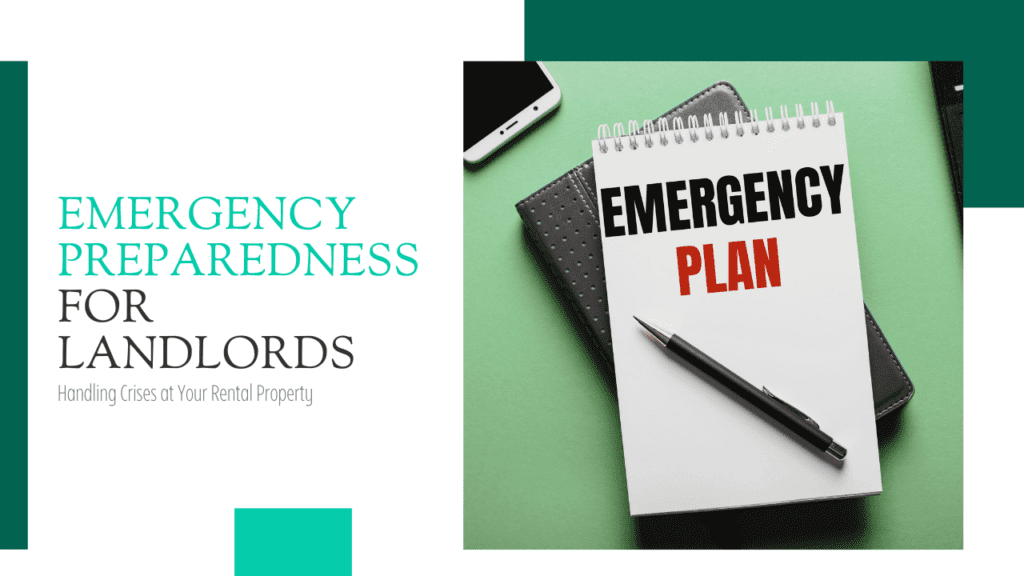
Planning for emergencies is necessary when you’re renting out a home in Los Angeles. There could be an earthquake. A flood, a fire, or even an earthquake.
No one likes to think about all the potential disasters that could occur, but by being prepared ahead of time, working your way through an emergency will be far smoother if the worst does happen.
Today, we are talking to Los Angeles investors and property owners about some of the things they should be thinking about when it comes to crisis communications and emergency preparedness.
Proactive Planning for Los Angeles Rental Property Owners
It pays to be proactive. While having a detailed and strong plan in place ahead of time won’t necessarily avoid an emergency, it will make that emergency easier to deal with. You don’t want to find yourself scrambling to figure things out in the middle of a fire or an earthquake or a plumbing disaster. The best offense is a great defense, surely you’ve heard that idiom before, and you can defend yourself and your property against all the uncertainty and fear that comes with emergencies by having a good crisis plan in place.
There are several things to address in your emergency plan.
- If you’re renting out a multi-family property, for example, you’ll want to be sure that all the exits are clearly marked.
- If all of your tenants need to vacate the property immediately or in the dark, they’ll need to know exactly how to get out, and emergency lights will help.
- If you’re renting out a single-family home, make sure it’s up to code and not vulnerable to any potential natural disasters that could occur without warning.
- Include all the necessary contact information in your emergency plan. There should be instructions on what-to-do-if _____.
Know the laws and make sure you’re compliant. There are lots of laws and regulations around earthquake strapping on water heaters, for example.
Educate your Los Angeles Residents
Let your tenants know how to protect themselves and your property during an emergency.
They should know where the shut-off valves are for water and natural gas, and they should also know how to get to the closest local hospital. Taking care of your property is a priority, but the safety and security of your tenants has to be a big part of your planning process.
There are many different ways to educate your residents.
- Some property owners and property managers prefer to use a handbook, which you can give to tenants before they move into your home.
- You can also provide PDF handouts and flyers that give your residents detailed instructions for what to do during an emergency.
- You might also include contact information for local emergency personnel.
- Consider making a video that they can watch that includes instructions and information.
There are different ways to put the necessary information in front of your residents. Just make sure they have the tools and the information they need in case an emergency prevents you from reaching them or from them reaching you.
Create an Emergency Checklist
Get a checklist in place that will lead you through important steps that will be required during any emergency.
Start by knowing who your regional authorities are. You’ll need to know which state, local, and federal agency will be best equipped to help you. Put together a checklist of people to contact. That might be FEMA if there’s a flood or an earthquake, for example.
The next thing on your emergency checklist should be ensuring your insurance policies are up to date.
Document the condition of your property and all of the appliances you have inside of it. Before you have a tenant move in, take a video that shows how the home looks. If there’s damage from a disaster, you’ll have proof of what the property looked like prior to the emergency occurring.
Prepare your own protocols. When an emergency actually occurs, you want to be able to go directly to your plan of action. When you have a standardized model of how you’ll respond, you’re going to feel more prepared and empowered.
Your checklist is best put together when you have time to sit down and plan. You don’t want to be making a list of things to do when you’re in the heat of an emergency.
Time will be of the absolute essence when you are in the midst of an emergency. If there’s water coming through a ceiling in your rental property, someone will have to mitigate that damage before your plumber or your water restoration company can arrive. Tenant communication and information is critical to keeping damage and costs under control.
In the case of a larger emergency, remember that first responders and emergency personnel are going to be busy. When there’s an earthquake or something impacting all of Los Angeles, a lot of people will need help, so if you know how to stop the damage from actively occurring on your property, you’ll be in a much better position.
Understanding the Los Angeles Region
 In the Los Angeles area, there are the local authorities such as fire departments and hospitals that will be your best resources if there’s an emergency that requires an immediate and professional response. Your tenants should know who they are and how to contact them.
In the Los Angeles area, there are the local authorities such as fire departments and hospitals that will be your best resources if there’s an emergency that requires an immediate and professional response. Your tenants should know who they are and how to contact them.
Make sure your tenants have information on where to find shelters, resources, and help. It’s easy enough to go online and find phone numbers and resources, but if you’re providing the support ahead of time, everyone will have more peace of mind and feel better prepared.
Fortunately, Los Angeles isn’t tornado prone and we probably don’t have to worry about dramatic snow. We thought hurricanes weren’t necessarily a problem, but the tropical storming and flooding in the summer of 2023 told us otherwise.
Review your insurance. Put together a plan. Make sure to include your tenants in all of your preparations.
If you have any questions about how to prepare your Los Angeles rental property for an emergency, please don’t hesitate to contact us at Earnest Homes.
